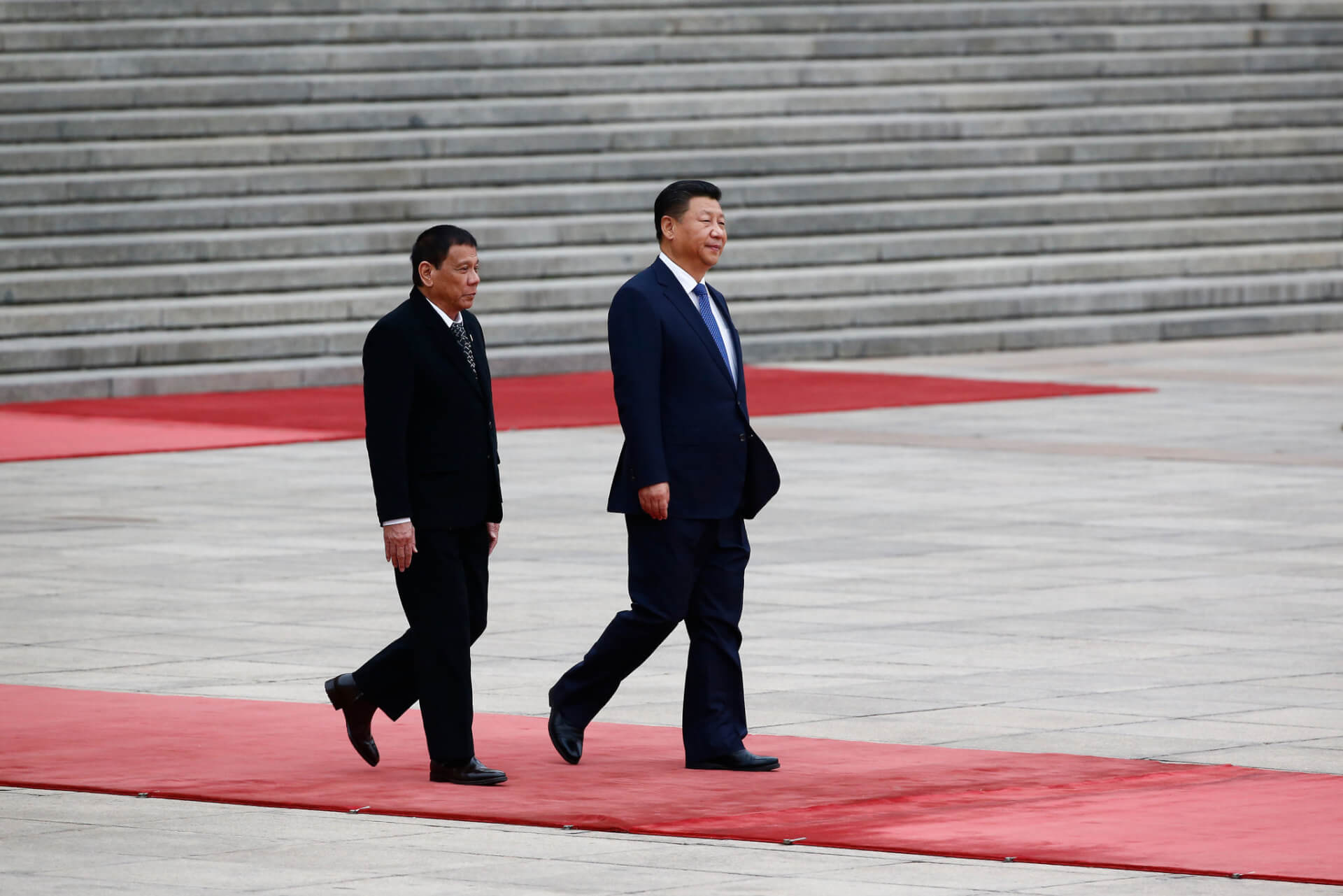Philippines President Rodrigo Duterte admitted on Monday that he could not afford to engage in a military confrontation with China over its maritime claims in the South China Sea (SCS), and therefore had no option but to address the issue through diplomatic means.
Speaking at his fifth state of the nation address, Duterte defended his government’s decision to not press a 2016 decision by the Permanent Court of Arbitration, which went in favor of the Philippines in a case against China. The tribunal ruled that: China’s nine-dash line claim and accompanying claims to historic rights had no validity under international law; that no feature in the Spratly Islands, including Taiwan-occupied Itu Aba (or Taiping Island), is an island under the United Nations Convention on the Law of the Sea (UNCLOS); and that the behavior of Chinese ships physically obstructing Philippine vessels is unlawful. China claims nearly all of the sea’s 1.3 million square miles as its own, and its maritime aggression and posturing have resulted in significant international pushback.
China Maritime Coverage:
- South China Sea Standoff: Indonesia Deploys Fighter Jets and Warships to Thwart China
- Malaysia-China Standoff in South China Sea Leads to Five Nation Face-Off
- Philippines Temporarily Backtracks From Decision to End Military Agreement With US
- Japanese Local Authority Moves to Rename Disputed Islands, Irking China
- US House Foreign Affairs Committee Holds Hearing Titled “China’s Maritime Ambitions”
- US Aircraft Carriers Deployed to South China Sea During Chinese Military Drills
- US, Japan Accuse Beijing of Territorial and Maritime Aggression
- Australia Rejects China’s South China Sea Claims, Says “No Legal Basis”
In recent times, China has been significantly increasing its military presence on islands claimed by the Philippines. Over the past two months, the Chinese People’s Liberation Army (PLA) has brought in advanced KQ-200 anti-submarine planes and KJ-500 control aircraft to the Fiery Cross Reef in the Spratly Islands chain. Beijing has also declared Fiery Cross–which is known as Kagitingan in the Philippines–as a part of its own territory in Southern Hainan. Additionally, it has stationed maritime militia vessels for over a year around Thitu Island, which is the Philippines’ largest occupied island in Spratly.
Duterte said that China’s stronger military forces meant that it was already “in possession” of the disputed waters, and stressed that while Manila could not challenge Beijing militarily, it would continue to use diplomatic tools to protect its rights in the South China Sea and redefine its relations with global allies. Taking a more measured approach to China may also be useful for the Philippines as it turns to Beijing for COVID-19 vaccines. The surging number of infections has left the country dealing with the worst economic situation in the last 30 years.
The leader also spoke about the rising US-China rivalry in the region, and emphasized that though his country had nothing against the United States, Washington’s plans to return to a former naval base at Subic Bay raise the prospects of war which could lead to the “extinction of the Filipino race”.

